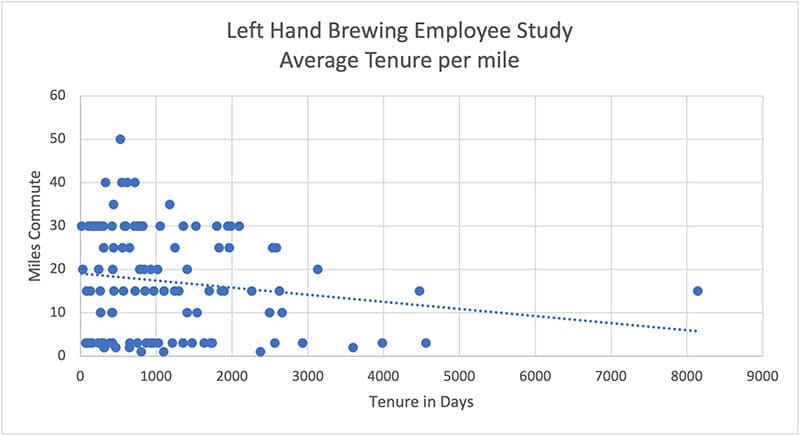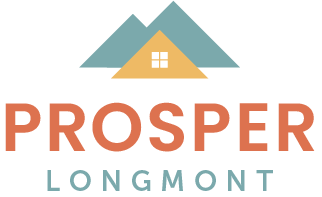Blog post by Eric Wallace, co-founder and president of Left Hand Brewing Company and founding member of Prosper Longmont
I am co-founder and president of Left Hand Brewing Company. I also chair the Longmont Economic Development Partnership board of directors and am one of the founding members of Prosper Longmont.
Almost 29 years ago, I left the Air Force and moved to Longmont with my wife, who at the time was seven months pregnant. We traveled throughout the western U.S. looking for a town to call home and chose Longmont. Those of you who know me and my company know that I am a huge supporter of Longmont and focused on how we can positively impact our city. This is my adopted hometown, after moving all around the world for 30 years. My children were born, raised, and schooled here. My eldest daughter works at Left Hand but has to live and drive in from Weld County because of housing costs.
Workforce housing is a major challenge that I as a business owner, and many others with whom I have spoken, are dealing with currently. It has become a crisis for us. I did a study to evaluate the relationship between the distance of our people’s commutes and their length of employment at Left Hand for 2016 through mid-year 2021 for people who have ended employment at Left Hand. I discovered that the farther someone has to drive to work, the shorter their tenure at Left Hand tends to be. From a business perspective, this increases recruiting and training costs and reduces the amount of experience on our team. From a quality-of-life perspective, it causes people to spend more time driving in a car to get back and forth.

I believe current policies and decisions impacting affordable and workforce housing exacerbate the housing crisis, they do not improve it. By focusing primarily on very low-income housing, we have gutted the housing supply for workers. No growth policies espoused by a vocal minority in our town advocate for policies that actually increase traffic congestion, impact urban sprawl in communities near us, and do nothing to truly address issues of diversity, equity, and inclusion. It seems to me that the choice is not to grow or grow not, it is to decide how to wisely manage the growth that is happening.And nothing indicates to me that we will successfully stop our state from growing anytime soon. I lived in Colorado Springs back in the 70s when the population first exceeded two million people and folks were upset then. It will continue to happen and housing costs will continue to skyrocket as supply and demand rolls inexorably forward unless we address the supply. If our young people can’t afford to buy homes in Longmont and begin to build equity, the nature of our community will be heavily impacted over time. Without increased housing density, transportation via transit is less feasible and more open space will disappear under tract homes, more and more road miles away. More road miles bring more air pollution and more road rage. We can’t say we are inclusive while acting to be exclusive. It is within City Council’s power and job description to insist that policies and decisions that impact development within our community be made guided by the vision and intent to creatively address all the challenges before us, in accordance with our Council-approved strategic plans.
The recently launched initiative, Prosper Longmont, is a cohort of residents, business and civic leaders who have come together to promote, identify, and implement creative and collaborative solutions to the development and financing of attainable housing in Longmont so that people who work in Longmont are able to afford to live in Longmont.
Prosper Longmont has four objectives:
- “Do No Harm”: Prosper Longmont will work with Longmont’s elected leaders to advocate for an approach to policy-making that does not have a negative impact on housing affordability, equitable access to home ownership opportunities, or the feasibility of creating attainable housing.
- Set Goals & Measure Progress: The Prosper Longmont coalition will set goals, measure progress, and hold ourselves and our City leaders accountable. We will do this by taking a data-informed approach to defining affordability, to objectively measuring the attainable housing gap, and to setting a target for the future creation of attainable housing that ensures people who work in Longmont can afford to live in Longmont.
- Align Policy & Process with Vision: Prosper Longmont will work in partnership with our elected leaders and City staff to identify and address barriers that exist in our current code, zoning, and development review process that prevent us from achieving the attainable housing goals established in Envision Longmont and Advance Longmont 2.0.
- Innovate & Create: Prosper Longmont coalition members will take a proactive approach to identifying and implementing creative, inclusive, and collaborative solutions to the creation and financing of housing that is equitably attainable for all individuals regardless of race, age, gender, ethnicity, religion, disability, or sexual orientation.
This mission works hand-in-glove with Envision Longmont and Advance Longmont 2.0.
Both Envision Longmont and Advance Longmont 2.0 serve as complementary strategic plans and visions for economic vitality, sustainability, and a pathway for the provision of important amenities in Longmont, ranging from safety to connectivity, from housing to the environment, from job training and growth and economic vitality to livability. They are balanced and well-thought out and it is obvious that a lot of thoughtful effort and outreach contributed to them. Longmont EDP, the organization the city has chosen to grow our employer base and to lead the coordination and implementation of Advance Longmont 2.0, works across numerous partners and stakeholders to realize these visions.
As the relatively new board chair of the Longmont EDP board, I eagerly have picked up the flag to work with the city to push Advance Longmont 2.0 forward. We were slowed down a bit by the pandemic, but working groups are meeting again. However, it appears to me that we are not yet all on the same page here in Longmont regarding strategic vision, policy, and the implementation of our plans. Envision Longmont describes the interrelationships among city departments, establishes the need for systems thinking and recognizes that there will be benefits and tradeoffs across Guiding Principles. My experience is that not all city departments collaborate, nor work together to resolve conflicts within city codes and regs to further the aims of these two strategic plans. I ask that both City Council and the City Manager work independently and jointly as appropriate to muster all our city resources and hold their teams focused on and accountable for the realization of these two plans. We at the EDP can’t successfully help coordinate the implementation of Advance Longmont 2.0 without full participation and accountability within the city. And we need that help on the housing front now. To that end, I have challenged Longmont’s City Council to adopt a goal of creating 5,000 units of attainable, for sale housing over the next five years, a goal that cannot be achieved without the collective efforts of all of us.

